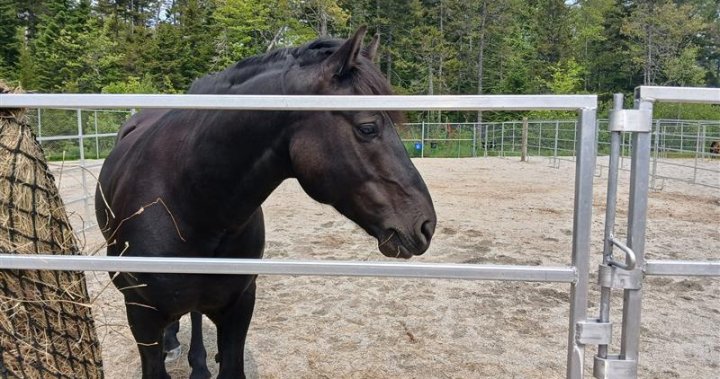A popular Nova Scotia farm and museum that came under fire on social media last month over concerns around the animals’ welfare now says improvements have been made.
Ross Farm Museum in New Ross, N.S., operates as a living heritage site — giving visitors a glimpse of what life was like in the 1800s.
Its executive director, Marc Tassé, says it’s hard to balance its preservation with the installation of modern amenities.
“We need to portray how things were done. How did things look 200 years ago? So that balance between history and modern standards has been something that we’ve been working on rebalancing,” said Tassé.
The museum faced recent criticism over the condition of its six horses. In November, a high-performance equestrian coach was asked to evaluate the animals and says it broke her heart.
In a phone interview, Susan Fraser told Global News the horses were scared and in poor physical shape — some suffering extreme pain in their feed.
Get daily National news
Get the day’s top news, political, economic, and current affairs headlines, delivered to your inbox once a day.
She says the site lacked a water supply and space, with the horses cooped up in stalls with standing room only
The horses were moved off-site in December and into Fraser’s care. Two of those horses will remain with her.
“Some of them need a little bit of rehabilitation because they were older, because there was different concerns and stuff that was happening, but more importantly, because we need to do some upgrades to the facility,” said Tassé.
Those upgrades include larger box stalls, mobile fencing, automatic watering systems, and cameras for 24/7 monitoring.
The horse program is also evolving, with the museum considering operating as a demonstration farm. In the past, the focus was on wagon rides.
It’s also building new pastures so the horses can run and play.
However, Fraser says she’s still worried about the horses that will return to the farm.
In response, Tassé says the museum is now focused on assuring the public the horses will be well care for when they return.
“There’s been a lot of questions, been a lot of concerns and we’ve been fielding them as we go through and it’s probably taking us a little bit longer than we should have to respond back to it as we go along,” he said.
“But the key is the animals are the first priority.”
© 2025 Global News, a division of Corus Entertainment Inc.

